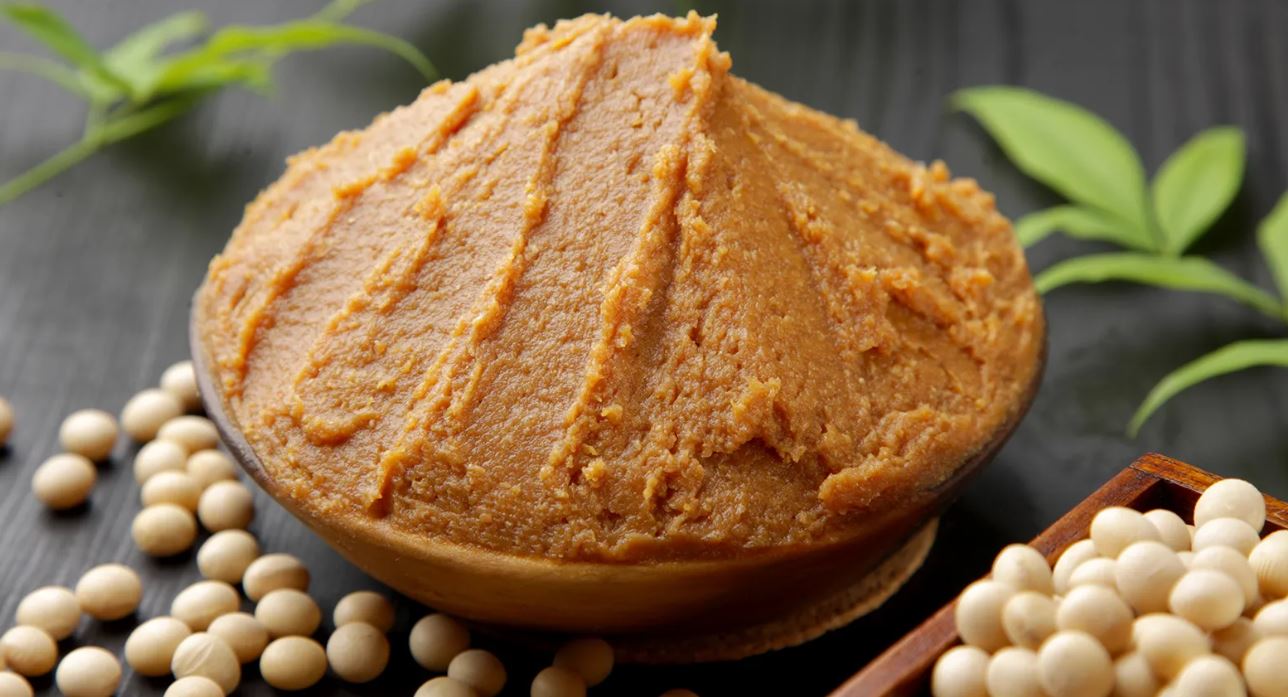Miso, a traditional Japanese seasoning, has gained immense popularity worldwide. It’s celebrated for its rich umami flavor and health benefits. However, if you’re following a vegan diet, you might wonder: Is miso vegan? The answer isn’t as straightforward as you might think. Let’s take a closer look at what makes miso and miso soup, and determine whether they fit into a vegan lifestyle.
Table of Contents
What is Miso?
Miso is a fermented paste made from soybeans, grains, salt, and koji (a type of mold). It has been a staple in Japanese cuisine for centuries, known for its unique flavor and nutritional benefits. The fermentation process involves mixing soybeans with grains such as rice or barley and allowing koji to break down the starches into sugars. This process not only enhances the flavor but also increases the nutritional value.
The resulting paste can vary in color and flavor, from light and sweet white miso to dark and robust red miso. Each type of miso offers a different taste profile, making it a versatile ingredient in many dishes. While miso paste itself is typically vegan, the concern arises with the other ingredients used in miso-based dishes, particularly miso soup.
Is Miso Vegan?
Most miso paste is vegan since it’s made from plant-based ingredients like soybeans and grains. The koji mold used in fermentation is also plant-friendly. However, it’s essential to check the packaging for any additional ingredients or cross-contamination if the miso is produced in a facility that also processes animal products.
In general, miso paste does not contain any animal-derived ingredients. But, when miso is used in various dishes, especially soups, it’s crucial to consider what other components are included. This brings us to the next point: miso soup.
When is Miso Soup Not Vegan?
While miso paste is usually vegan, miso soup often is not. Traditional miso soup uses a Japanese stock called dashi, which frequently contains fish-based ingredients. This is the main reason why many miso soups are unsuitable for vegans.
Dashi is a fundamental component of Japanese cuisine, known for its deep umami flavor. Classic dashi is made from kombu (a type of seaweed) and katsuobushi (dried bonito flakes). Bonito flakes come from skipjack tuna, which makes the broth non-vegan. Some regional variations might include other fish or even shellfish, further complicating things for those avoiding animal products.
In addition to dashi, some miso soups might include other non-vegan ingredients. These can range from added fish or shellfish to pork in some variations. Even some seemingly vegetarian-friendly versions might use chicken broth instead of dashi, making it crucial to check the ingredients or ask how the soup is prepared.
Understanding these ingredients is key for anyone following a vegan diet. Recognizing the non-vegan components helps in making informed choices when dining out or preparing meals at home. Fortunately, there are ways to enjoy vegan miso soup by using alternative ingredients, which we’ll cover next.
Wrapping Up
In conclusion, while miso paste is typically vegan, the ingredients used in miso soup often determine whether it fits into a vegan diet. Traditional miso soup made with fish-based dashi is not vegan. However, vegan alternatives using kombu and shiitake mushroom dashi are widely available. By paying attention to ingredients and asking the right questions, you can enjoy vegan miso soup at restaurants or make it at home.
